I love filigree because IT’S BEAUTIFUL!
What is Filigree?
Merriam-Webster defines filigree as “(1) Ornamental work, especially of fine wire of gold, silver, or copper applied chiefly to gold and silver surfaces. (2) Ornamental openwork of delicate or intricate design. (3) a pattern or design resembling such openwork e.g., a filigree of frost.” Note this gorgeous photograph of nature’s own filigree in frost: One of the most striking creations of nature itself!
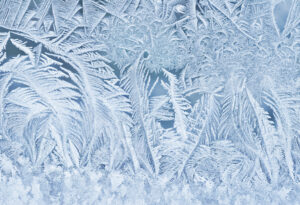
Quite like the filigreed frost is a Japanese Maple Tree, commonly known as a Filigree Japanese Maple Tree–another of nature’s own magnificent filigree creations…
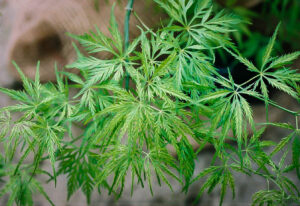
Man-made filigreeing probably began in the composition of jewelry. Artists have usually tried to make their work more attractive. Add interest. Hold people’s attention and absorption in the artist’s jewelry or other fine metal works. Make it more eye-catching so people would love the way it looked.
It is thought that as early as 3000 BC people devised filigree, a new way to add beauty to their art– usually jewelry and other small items. Filigrees were made with malleable metals like gold and silver; long small rods were twisted, crumpled, pounded, wrenched, pulled together, and made into fine lacy, spiral, wavy, and other shapes, then soldered onto other pieces to add to the artwork.
In the photos below, see if you can spot the filigreed part(s) on each one. It is sometimes hard to tell which part(s) are filigreed and which aren’t, and sometimes the whole piece itself is filigree.
Note this photo of this lovely brooch that is literally all filigree– small lines, curls, and lacy pieces that were added one, or pieces made of several filigrees, one at a time. Together they comprise a very impressive piece of jewelry!
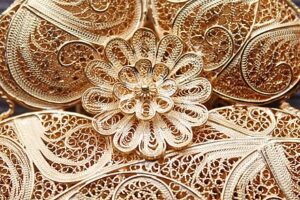
Filigree makes the difference between “plain” and “fancy,” but people often don’t recognize it because it’s so common and the eye tends to admire an artful object in its entirety rather than in pieces. We’ve gotten used to seeing it in so many different mediums. Consider ornamental stationery (with curlicues and lacy pieces along the edges or in the corners), modern and antique jewelry, furniture, shoes, clothes, mailbox platforms, mailbox pedestals, fence railings, outdoor and indoor elegant stair railings, fence gates, shelf brackets, wood objects such as furniture—even calligraphy and embroidery! The use of filigree in items is endless!
Filigree Jewelry
Keeping in mind that filigree is usually small curlicues, wispy-like pieces, leaves, lacy pieces, leaves, flowers, etc., let me draw your attention to the photos of rings and brooches. On the first ring the filigree part appears to have been added to the outside of the band that goes around the finger. In the third ring photo, the filigree pieces were added to the upper and lower bands that encircle the finger; the upper and lower bands that go around the finger are not filigreed. The fourth ring has also had the filigree items added on the outside of the band that goes around the finger.
The next item is a scarf ring that keeps two or more pieces of a scarf together or can be used in conjunction with knots in a scarf; it does not go around a finger. The filigree parts are the wispy black lines and perhaps the gold center lines.
The butterfly brooch is a stunning piece made entirely of filigree; note the numerous small pieces connected to the larger pieces.
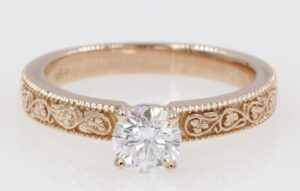
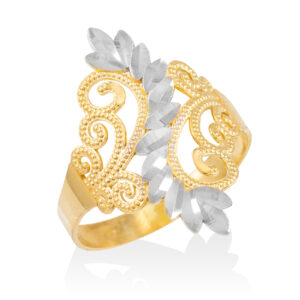
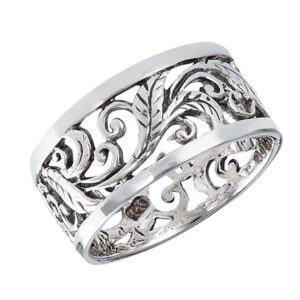
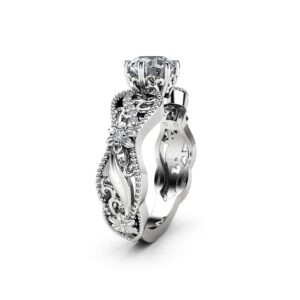
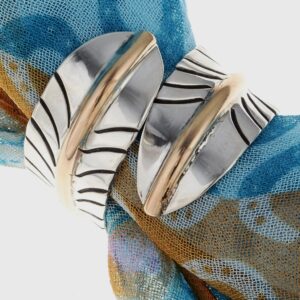
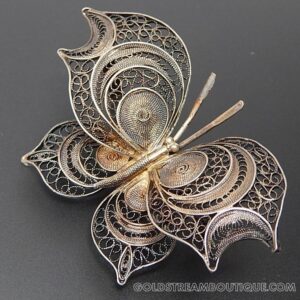
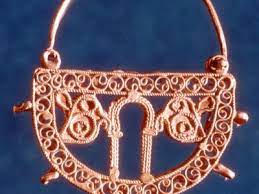
Check out these very elaborate filigree earrings made of leather. The filigree parts are made of cutwork; that is, the parts that are cut out of the leather make the filigreeing. Cutwork lends itself to filigree and results in an interesting complexity that creates a very classy look indeed.
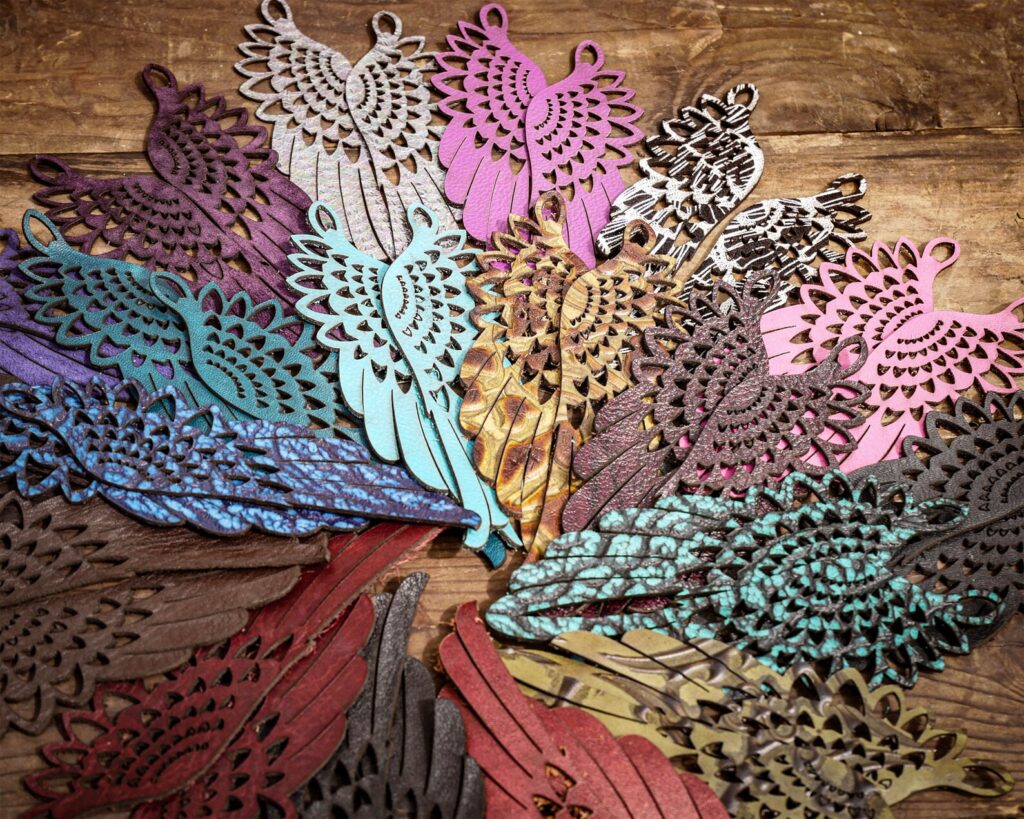
Filigree Art Pieces
There are countless ways filigreeing is used. Look for the creative ideas people have used in these photos.
In the photo of the cross with Christ, the cross appears to have been filigreed and the Christ figure attached to it. In the two photos of horses, the filigree items are the curlicues and leaves and were glazed.
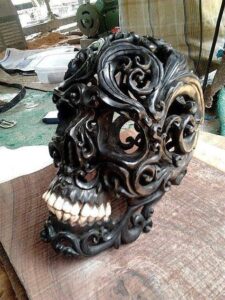
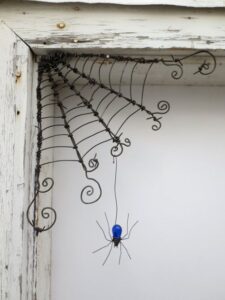
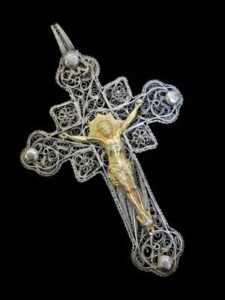
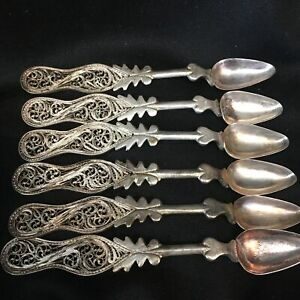
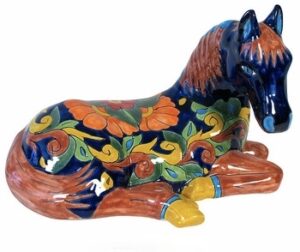
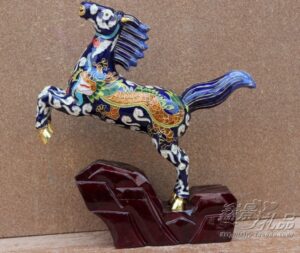
Filigree Musical Instruments
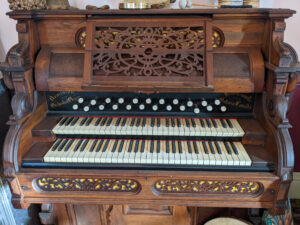
Victorian Reed Organ With Filigree Woodwork
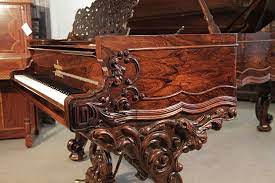
This photo shows a Baroque guitar with a filigree rosette and bridge. The filigrees are the tiny pieces, curlicues, and lacy parts.
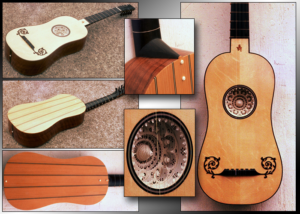
Baroque guitar with filigree rosette and bridge
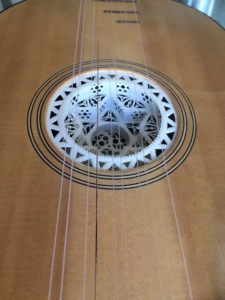
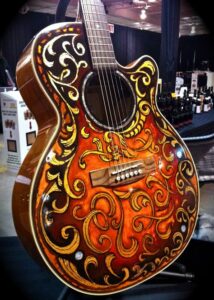
And electric guitars can be similarly impressive, displaying as much or more filigree design as do acoustic guitars.
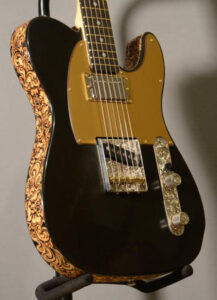
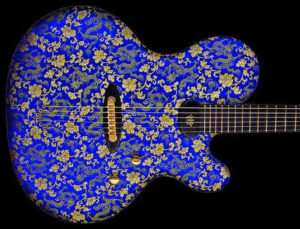
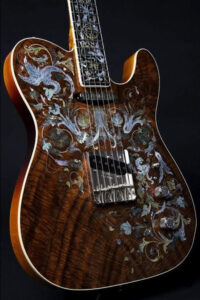
And note the astonishing creativity in these electric guitars; the first features a lady’s face with a surprised expression, and the second one mimics a very blue sky with clouds and Chinese dragons.
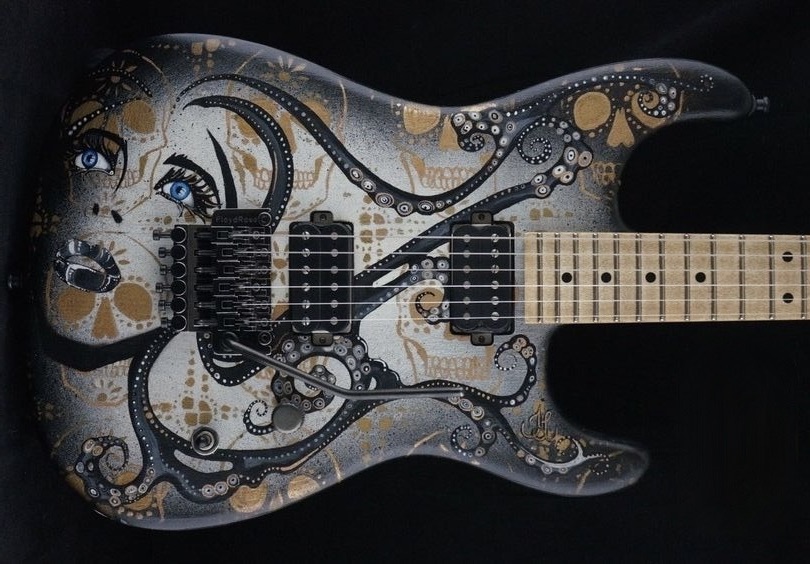
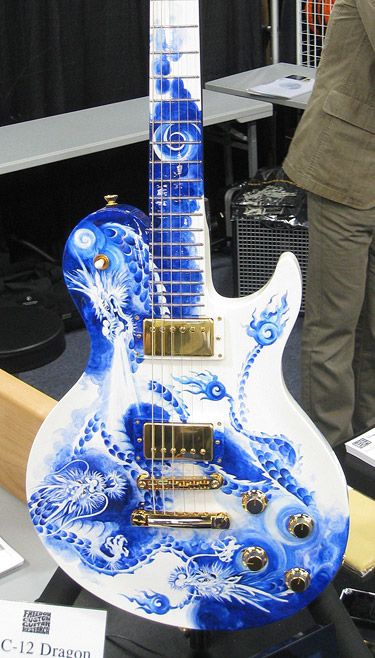
Filigree Furniture
Wooden and metal filigree-designed items show yet another facet of the beauty. Some wooden filigreeing is also cutwork and some are not, as shown here. Metal also lends itself very well to filigreeing.
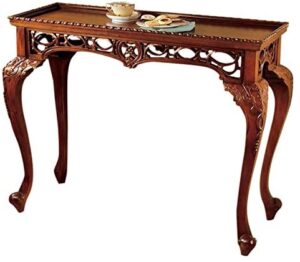
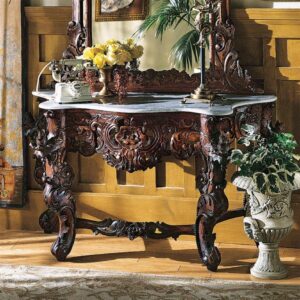

Filigree Garden, Porch, and Patio Furniture
In the 16th Century, filigree became popular on wrought iron–iron alloy that is created by smelting and fusing iron. Today wrought iron is seen very often in ornamental metal additions to furniture, stairs, mailbox stands, shelf supports, screen doors, etc. It can be very exotic and creative.
Check out the wrought iron in the below patio furniture and the lovely garden bridge.
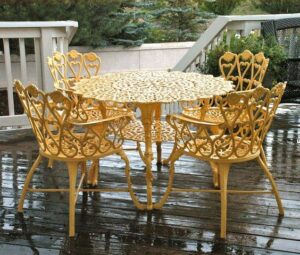
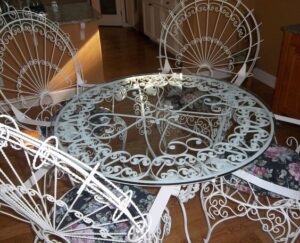
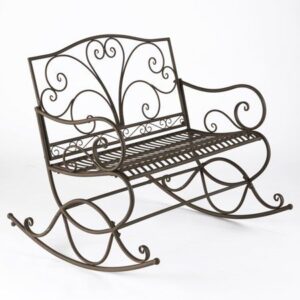
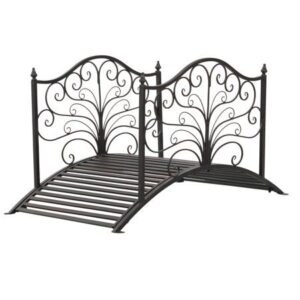
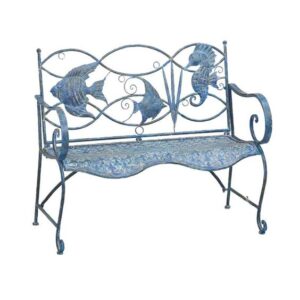
Filigree Doll-House Furniture

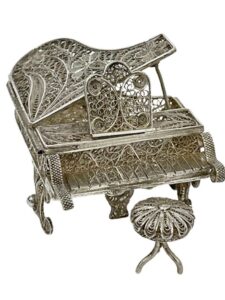
Filigree Staircases
Check out the following filigree staircases. Lovely! A plain one is shown first to contrast with the others–again, the difference between “plain” and “fancy.”

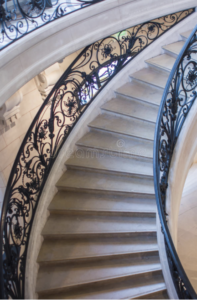
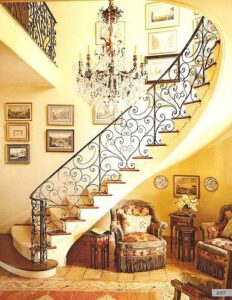
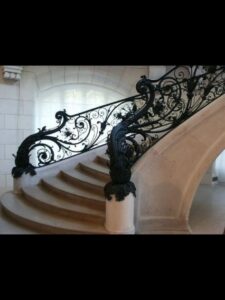
In the photo below, the stairs themselves, as well as the stair casing, are filigreed.
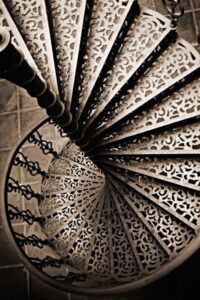
Filigree Light Fixtures
Which of these lights do you like the best? What does your selection say about your style tastes?
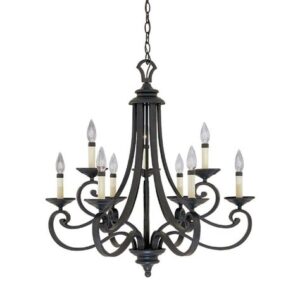
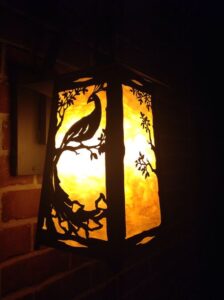
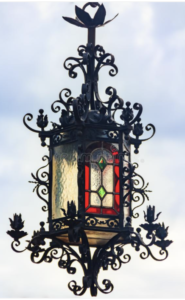
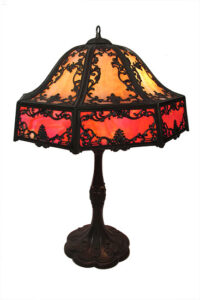
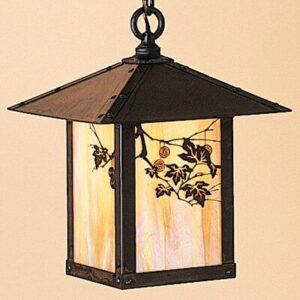

Filigree Gates
As noted, filigree particularly lends itself to making gorgeous wrought iron structures. Note these fence gates; some are quite extraordinary and even breathtaking! Which do you like the best?
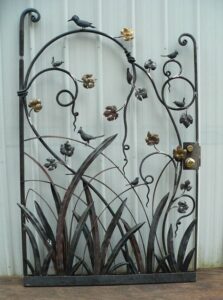
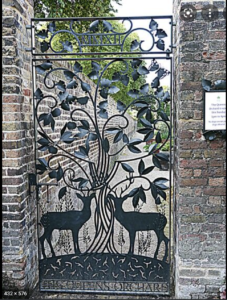
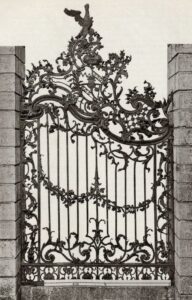

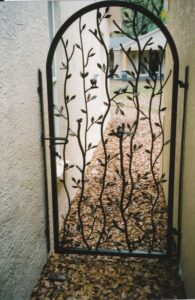
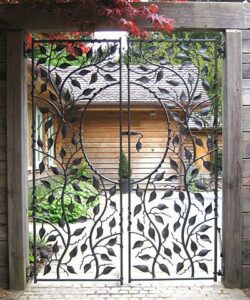
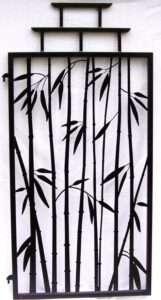
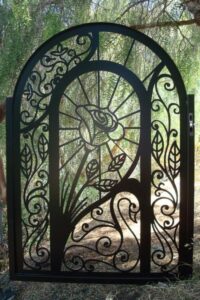
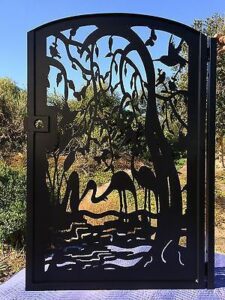
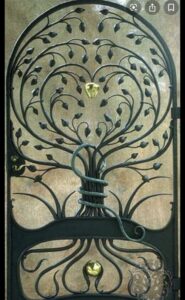
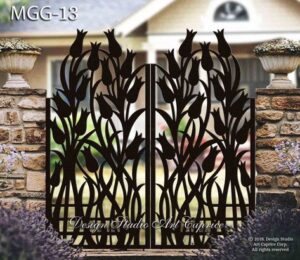
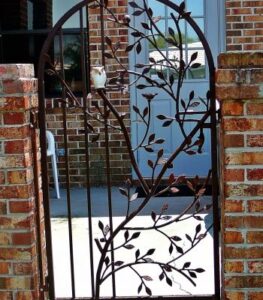
And once again nature adds her delicate but amazing effects to the act….



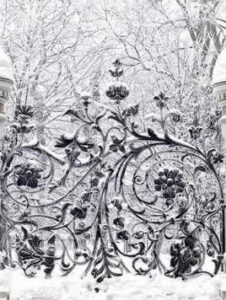
And in the next two photos, the Christmas wreaths may steal the show, but the snowy filigree pieces certainly add to the effect.


Filigree Drawings and Paintings
Not surprisingly, much filigree art has been done in drawing and painting. Here are a very few of many, many examples.


Note the elaborate filigreeing involved in the picture below. It’s done both in black on white and white on black. Very elaborate; very creative.

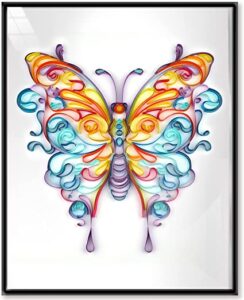

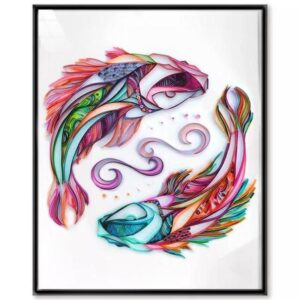
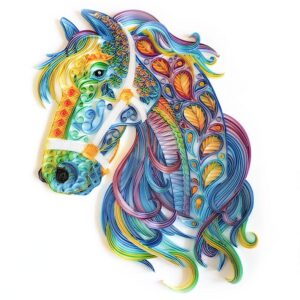
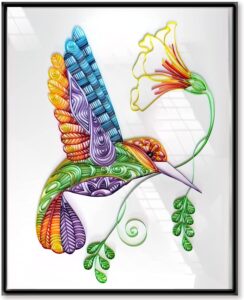
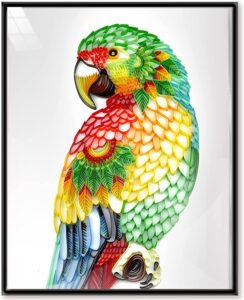
Filigree Clothing
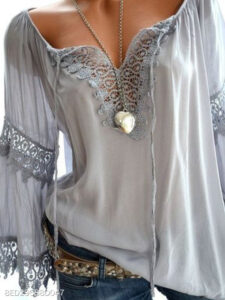


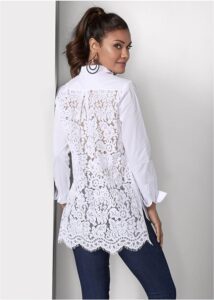

Check out this arresting top–so eye-popping it might stop people on the street! The large daisies at the left and right tops would probably not be considered filigrees because they are not small and wispy, but otherwise this entire top is made of filigreed pieces–the cutwork, lace, and the wispy designs on the blue bodice. Very sexy indeed.
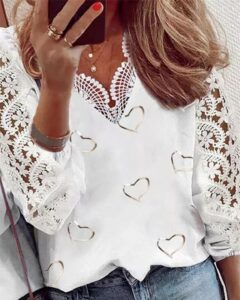
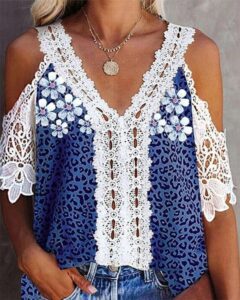
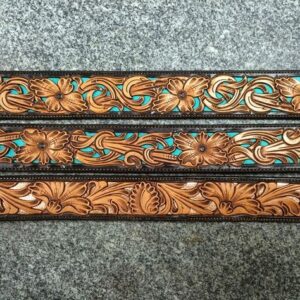
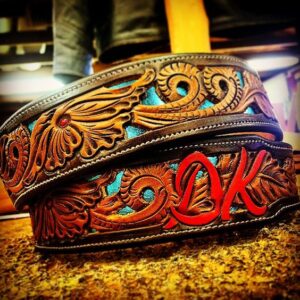
Filigree Foot Apparel
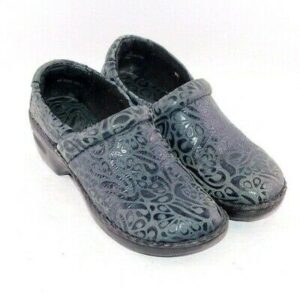
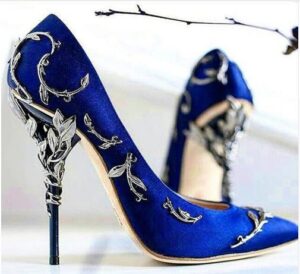
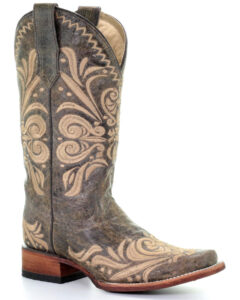
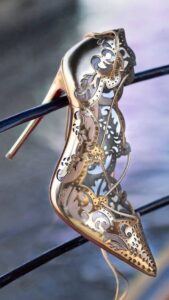
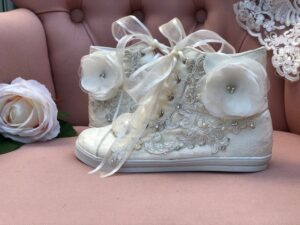
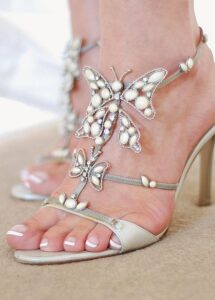
I hope you have enjoyed your exploration into the world of filigree! The study of what you like in the way of art and why it explains a lot. For those who enjoy a fancy flair, you might enjoy just a little bit or quite a lot. Either way, filigree is a wonderland!
Now, in the next blog, let’s look at filigreeing in embroidery.